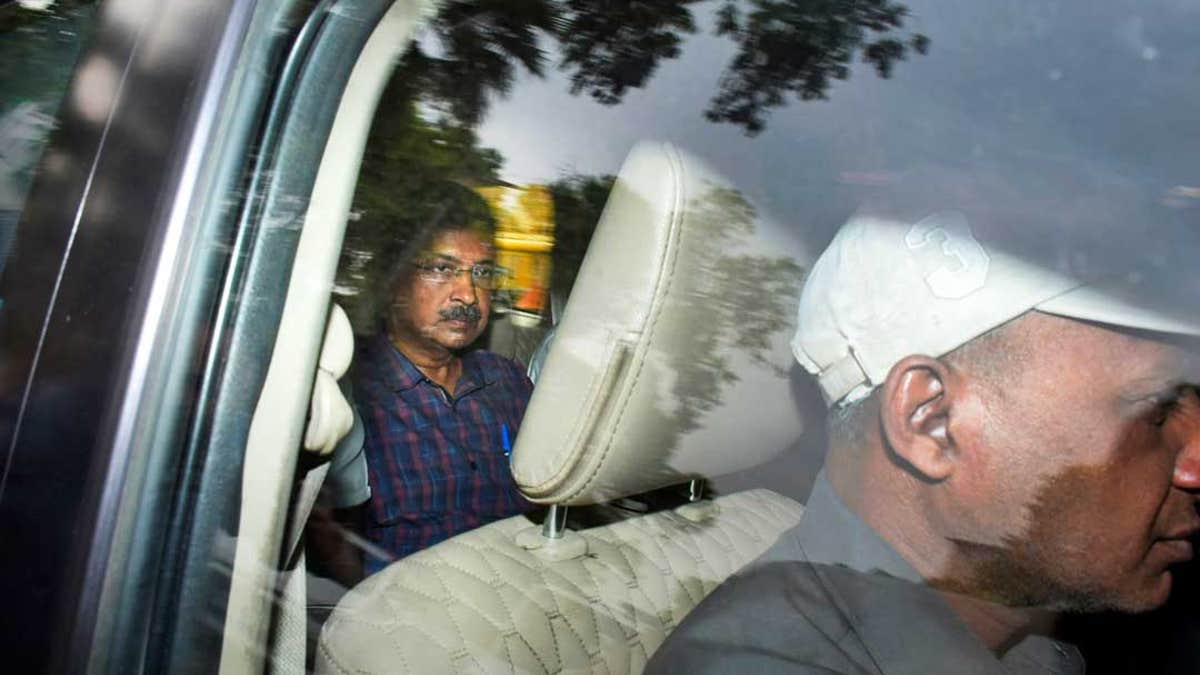Biden meets with Indian Prime Minister Modi
FOX News White House correspondent Peter Doocy reports on President Biden’s appearance in India for the G-20 summit on ‘Your World.’
An Indian court on Thursday extended custody of a top opposition leader for four more days after his arrest last week triggered protests, as the country gears up for a general election starting next month.
Arvind Kejriwal, New Delhi’s top elected official and one of the country’s most consequential politicians of the past decade, was arrested by the federal Enforcement Directorate on March 21. The agency, controlled by Prime Minister Narendra Modi’s government, accused Kejriwal's party and ministers of accepting 1 billion rupees ($12 million) in bribes from liquor contractors nearly two years ago.
The Aam Aadmi Party, or Common Man’s Party, has denied the accusations and said Kejriwal will remain its chief minister as it fights the case in court.
In court on Thursday, Kejriwal called his arrest "a political conspiracy." His political party is part of a broad alliance of opposition parties called INDIA, which is the main challenger to Modi’s ruling Bharatiya Janata Party in the coming election.
Hundreds of Kejriwal's supporters have been holding protests since he was arrested by the Enforcement Directorate, the federal agency that probes economic offenses, on Friday.
SUPPORTERS OF INDIA'S OPPOSITION LEADER FLOCK TO CAPITAL IN PROTEST OF HIS ARREST
The agency has accused Kejriwal of being the "kingpin and key conspirator" in the liquor bribery case. Kejriwal has refuted the allegations and accused the directorate of "manipulating investigative agencies for political motives."

Arvind Kejriwal, leader of the Aam Admi Party, or the Common Man's Party, left, departs court after a controversial decision to extend his custody for four more days on Thursday, March 28, 2024. (AP Photo/Dinesh Joshi)
Kejriwal's case has dominated the news in India ahead of the general election, which starts April 19. India's opposition parties say the government is misusing its power to harass and weaken its political opponents, pointing to a spree of raids, arrests and corruption investigations against key opposition figures. Meanwhile, some probes against erstwhile opposition leaders who later defected to the BJP have been dropped.
The BJP denies targeting the opposition and says law enforcement agencies act independently.
Kejriwal's arrest is the latest setback for the bloc, and came after the country’s main opposition Congress party accused the government last week of freezing its bank accounts in a tax dispute to cripple it. Opposition figures have slammed the move as undemocratic and accused Modi’s party of misusing the agency to undermine them.
U.S. State Department spokesperson Mathew Miller this week said Washington was following Kejriwal's case.
"We are also aware of the Congress party's allegations that tax authorities have frozen some of their bank accounts in a manner that will make it challenging to effectively campaign in the upcoming elections," Miller said, adding that the U.S. encouraged a fair and transparent legal process for each of these issues.
MUSLIMS IN INDIA VOICE CONCERNS THAT NEW CITIZENSHIP LAW COULD FURTHER MARGINALIZE THEM
Indian officials objected to those comments on Wednesday and summoned a senior official from the U.S. embassy in New Delhi. India’s Foreign Ministry spokesperson said Thursday the remarks from the State Department were unwarranted.
"In India, legal processes are driven only by the rule of law. Anyone who has similar ethos, especially fellow democracies, should have no difficulty in appreciating this fact," Randhir Jaiswal told reporters.
New Delhi also summoned a senior official from the German Embassy over the weekend after its Foreign Office spokesperson said they were following Kejriwal's case and that the opposition leader was entitled to a free and fair trial.









































